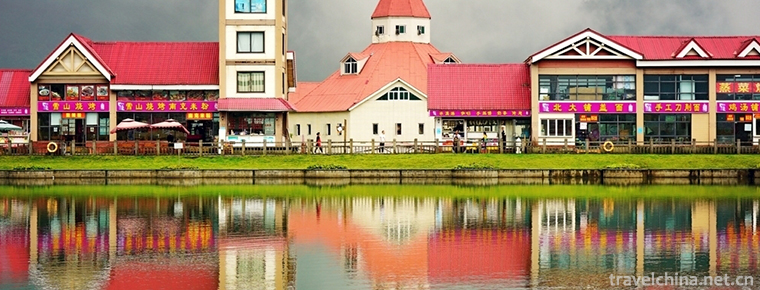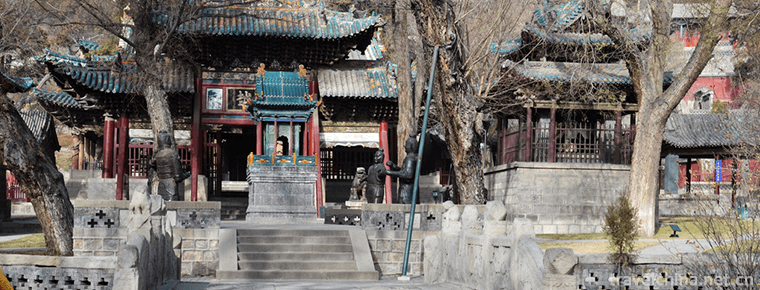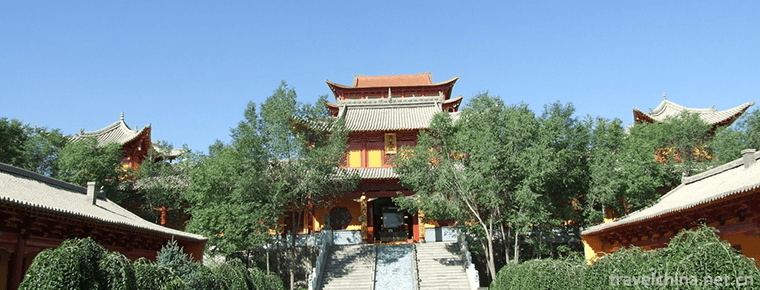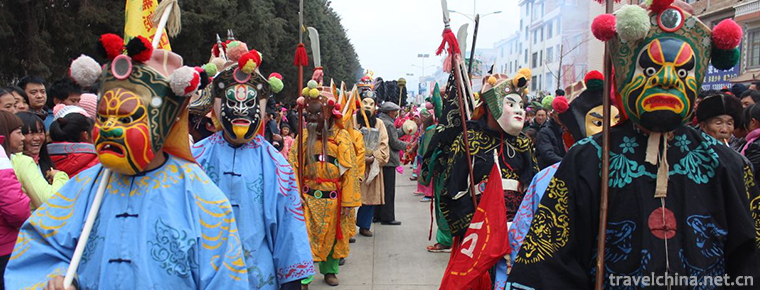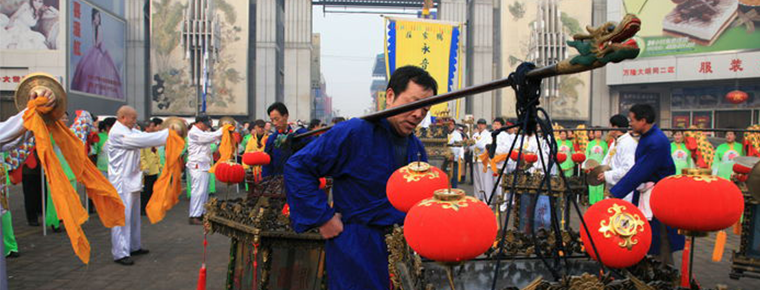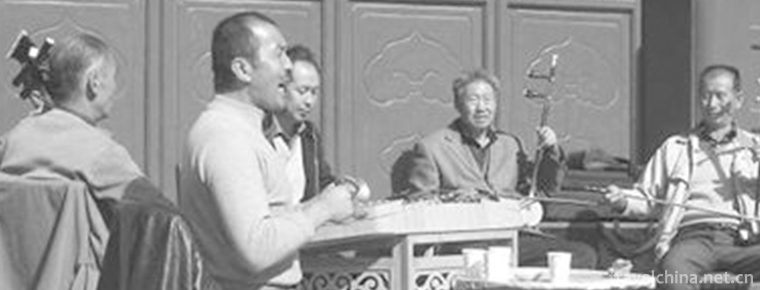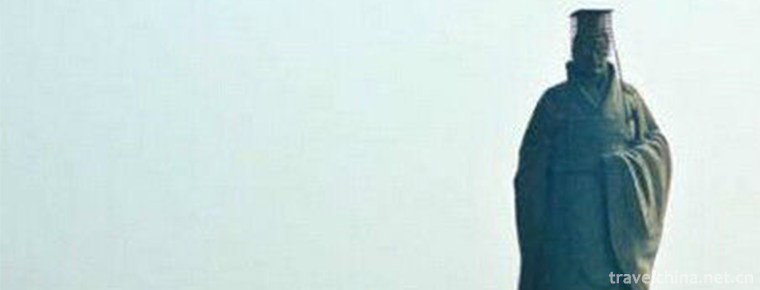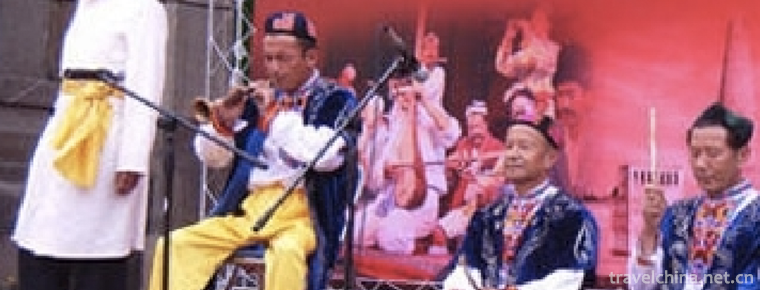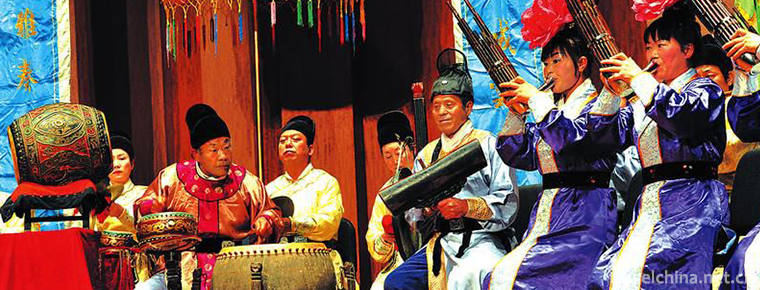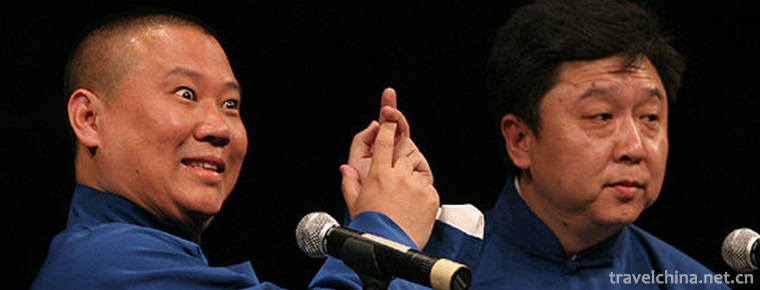China Foreign Affairs University
China Foreign Affairs
University is a small scale, high level and
distinctive foreign ministry's sole institution directly under the guidance of
serving the cause of China's diplomacy and cultivating first-class foreign and
foreign affairs talents. Treasury Department One of the 6 small pilot
universities is the first batch of countries. "Double
First-Class" initiative The first class universities in the world are
selected as the first batch of universities. Outstanding legal talents
education and training plan " Chinese government scholarship to
receive international students in China , with Graduate School Known
as "the cradle of Chinese diplomats".
China Foreign Affairs University was founded in September 1955. Zhou Enlai The prime minister personally advocated, through the Central Committee of the Communist Party of China, Chairman Mao Approval, in Renmin University of China The foundation of the diplomatic department was established. Premier Zhou inscribed the name of the school for himself, then Vice Premier and Minister of foreign affairs of the State Council. Chen Yi Marshal served as the first Dean of China Foreign Affairs University. On January 3, 2014, Vice Minister of education Hao Ping and Assistant Minister of Foreign Affairs Qian Hong Shan Jointly signed the agreement of the Ministry of education and the Ministry of Foreign Affairs on building the China Foreign Affairs University.
As of September 2017, China Foreign Affairs University has an Exhibition Road Campus and a Shahe campus, covering an area of 352 thousand and 300 square meters. It has an area of 1 million 820 thousand and 100 square meters. It has 9 teaching units and 13 undergraduate specialties. There are 29 research centers: 1 Ph.D., two disciplines, doctoral degrees, 3, one level master's degree, 3 master's degree, two master's degree authorization points, and master's degree authorization points, 3 key disciplines, Beijing key disciplines, teaching staff, and total number of students.
Historical evolution
Initial stage of school establishment
In the spring and summer of 1949, Chairman Mao It has put forward the new China's diplomacy to "start all over again" and "clean up".
The three principles of "house to treat again" and "one-sided" are the major decisions to make a clean break with the old China's semi colonial diplomacy and safeguard the independence and sovereignty of new China. At the beginning of the founding of the people's Republic of China, China did not yet have a higher education institution to train diplomatic cadres for itself. The first batch of People's Republic of China sent to the new diplomatic relations countries Diplomatic envoy Some of them came from Party and government leading cadres, and some were drawn from cadres of the PLA. In order to train diplomatic cadres of new China, in February 1950 Renmin University of China Set up department of diplomacy A small number of cadres and trainees from all over the country have been trained.
From 1952 onwards, Zhou Enlai During several interviews with the comrades of the Ministry of foreign affairs, the prime minister mentioned the issue of establishing China Foreign Affairs University.
In June 2, 1953, according to the instructions of Premier Zhou, the Ministry of foreign affairs drafted some suggestions on the cultivation of diplomatic cadres in the future. The fourth part is "raising China Foreign Affairs University". The proposal put forward: "the establishment of China Foreign Affairs University is specially designed to train middle-level diplomatic cadres. The source of the students is the county level cadres who have been tested during the Anti Japanese war. The establishment of China Foreign Affairs University should start from now on in order to formally establish next year.
On September 16, 1953, the Ministry of personnel affairs of the Ministry of Foreign Affairs reported to the leaders of the Ministry and Premier Zhou several opinions on the establishment of China Foreign Affairs University.
1954 Geneva conference After that, the Central Committee made the decision to "strengthen diplomatic work and international activities, and vigorously train cadres and prepare for the establishment of China Foreign Affairs University". On September 1st, the Party committee of the Ministry of foreign affairs will report to Premier Zhou after preparing for the discussion on the issue of China Foreign Affairs University, which was submitted to the Central Committee by Premier Zhou himself. Formally approved by the Party Central Committee and Chairman Mao. Renmin University of China China Foreign Affairs University is founded on the basis of the diplomatic department.
In December 8, 1954, the Ministry of foreign affairs established the Preparatory Committee for the establishment of China Foreign Affairs University, Vice Minister of foreign affairs. Wu Shu Quan Mr. Ren, director of the general office of the Ministry of Foreign Affairs Yan Bao hang Deputy director.
In September 1955, most of the Faculty of Foreign Affairs Department of Renmin University of China and all the students of the diplomatic department and some administrative cadres transferred to China Foreign Affairs University. At the same time, they recruited 1955 freshmen in the name of China Foreign Affairs University. Most of them were from the general departments in the name of the Department of the Central Committee. cadre at the rank of section chief 。
In September 10, 1955, China Foreign Affairs University was in Beijing. Xiyuan The auditorium of the central government organ held an inaugural meeting. Premier Zhou Enlai personally wrote the school card for China Foreign Affairs University.
At the beginning of the founding of China Foreign Affairs University, according to the relevant provisions of the state at that time, the party's work of the college was headed by the Party committee of the Beijing municipal Party committee, and the administration and teaching work were headed by the Ministry of foreign affairs and the Ministry of Higher Education. Premier Zhou once said he could take part in the presidents himself, and the idea was too busy after the premier's work. Until 1959, China Foreign Affairs University had not appointed a senior president, the Ministry of foreign affairs appointed. Li en Jie As the executive vice president and Secretary of the Party committee, he presides over the overall work of the college. In the early days of China Foreign Affairs University, the conditions for running schools were relatively simple. At that time, the new school building had not yet been completed, and the teachers and students in the college had borrowed the original Xiyuan. Beijing Institute of foreign languages The original school building and the Ministry of foreign affairs culture cram school's schoolroom.
In March 1956, the new school building was completed and the College moved to a new site (Fucheng gate, Xicheng District, Beijing). Exhibition Hall Road )
In the early days of the founding of the college, there were undergraduate and specialties. The undergraduate school system was originally a four year system, and then changed to a five year system to recruit senior high school graduates. The specialties were originally one-year and later changed to two years. The task is to train cadres and trainees in some areas and units transferred to the foreign affairs department, and train cadres in the Ministry of foreign affairs and other foreign-related units. Since its founding, China Foreign Affairs University has begun to recruit graduate students. international relation , International Law , world economy And research personnel and teachers of world history. In addition, in the course of running the school, some different classes have been run according to the characteristics of different trainees and the needs of diplomatic work, such as ethnic minority classes and workers' classes. Ambassador , Counsellor Gao Gan ban and so on.
Since 1957, as the number of junior and intermediate cadres in the diplomatic system is almost saturated, the school has adjusted its training targets according to the instructions of the Ministry of foreign affairs since the new academic year of 1957. In that year, the college freshmen were recruited for the first time, and the enrollment training for young cadres was expanded.
In January 17, 1958, the Ministry of foreign affairs submitted a report to Premier Zhou and vice premier Chen Yi to expand the scope of training and training of cadres. "It is recommended to transform China Foreign Affairs University into University of International Relations. Its main tasks are to train cadres in the Ministry of foreign affairs and other foreign-related departments, and train teachers, junior researchers, journalists and editors in international relations. After the founding of University of International Relations, the existing cadre schools of foreign-related departments may consider appropriate integration so as to concentrate their strength and financial resources, and do well in the training of cadres in University of International Relations. "The source of students from University of International Relations can also be recruited by a number of university graduates according to their needs, mainly from the selection of cadres from various foreign-related departments."
In August 1, 1958, China Foreign Affairs University officially changed its name to University of International Relations 。 Chen Yi, vice premier of the State Council and Minister of foreign affairs, wrote the school cards for the college.
In September 1959, the Ministry of foreign affairs decided to report to the State Council for appointment. Chen Xin Ren He is the president and Secretary of the Party committee of University of International Relations.
In November 29, 1960, the Ministry of foreign affairs asked Chen Yi, vice premier of the premier and Premier Zhou of the University of International Relations, to turn to University of International Relations as an on-the-job diplomatic cadre school. "In order to adapt to the needs of the international situation and the need for diplomatic work", it is "easy to concentrate on the existing teaching capacity, vigorously improve teaching methods, enhance teaching effectiveness, and cultivate a large number of junior and junior diplomatic cadres who are really in conformity with the specifications". This document is approved by the Central Committee of the newspaper.
In April 1961, the Party committee of the Ministry of foreign affairs discussed and adopted the specific opinions on implementing the prime minister's approval of University of International Relations to serve as a rotating Cadre Training Institute for in-service diplomatic cadres. He put forward specific opinions on the principles, tasks, scale, organization, compilation of teaching materials, training and placement of in-service cadres, and so on. At the same time, it is proposed that Vice Premier and foreign minister Chen Yi should serve as the dean of University of International Relations in order to adapt to the changes in the nature of the college and strengthen the leadership of the Academy.
In October 5, 1961, at the 113rd plenary session of the State Council, the China Foreign Affairs University was approved to resume its original name, and vice premier Chen Yi was officially appointed as the dean of China Foreign Affairs University. Chen Xinren was vice president of China Foreign Affairs University.
Ten years of Cultural Revolution
In June 1966, " The Great Proletarian Cultural Revolution Let's start. The leaders at all levels of the college are being punished, and the normal teaching order is completely disrupted, and the teaching work is forced to stop. All the offices were paralyzed except that the canteen was still serving meals.
At the end of 1967, the central government decided to send the PLA into the universities to "support the left". After the Liberation Army entered China Foreign Affairs University, after a period of work, the "rebel corps" announced the dissolution.
In August 22, 1968, according to the central directive, "Jun Xuan team" and "Gong Xuan team" were stationed in China Foreign Affairs University at the same time. In the process of "cleaning up the ranks of the class", hundreds of people were detained and killed, and their physical and mental bodies were greatly damaged.
In 1969, due to Lin Biao " Gang of four "Disruption and disruption", China Foreign Affairs University was suspended on the grounds of "implementation of revisionist line". In September 17th, the Ministry of foreign affairs made a counter proposal to the Central Committee of the Communist Party of China (CPC) and the Joint Commission of the Ministry of political affairs in the joint name of the Party committee. In October 27th, Premier Zhou was forced to agree to pay the report. Chen Boda , Kang Sheng , Jiang Qing , Huang Yongsheng , Yao Wen Yuan Nuclear approval. Immediately, the military propaganda team stationed at the college announced the closure of the college at the General Assembly meeting. All teachers and students delegated the labor of five. Seven dry school in Jiangxi.
In January 3, 1970, the decentralization office was revoked, the school buildings and equipment were received by the General Administration of the PLA, and all the clerical files were destroyed. So far, China Foreign Affairs University has not existed and left a sad page in the history of the development of the college.
Reform and development
In June 1979, the Ministry of Foreign Affairs reported to the Central Committee of the China Foreign Affairs University on the report on restoring the China Foreign Affairs University. "The guiding principle and task of China Foreign Affairs University is to adhere to the party's educational policy and fully implement the instructions of Premier Zhou to set up three basic skills, namely," lay a solid foundation in politics, basic skills in foreign languages, and basic knowledge in knowledge ".
In June 1979, the Ministry of foreign affairs set up the Party committee of China Foreign Affairs University and the preparatory school for the resumption of the school to prepare for the resumption of the school.
In April 1980, the State Council officially approved the resumption of China Foreign Affairs University. In April 4th, the Ministry of Education formally informed the Ministry of foreign affairs to resume the China Foreign Affairs University. In April 5th, after ten years of suspension, the college once again hung out the China Foreign Affairs University school card inscribed by Premier Zhou. In September, China Foreign Affairs University enrolled the first undergraduate student after the resumption of the school, and opened a foreign language training course for in-service cadres in the Ministry of foreign affairs.
In March 31, 1981, the Party group of the Ministry of foreign affairs discussed the nature, tasks and scale of the China Foreign Affairs University after the discussion of the "opinions on several issues of China Foreign Affairs University" by the Political Department of the Ministry of foreign affairs.
In 1985, after graduating from China Foreign Affairs University, the first batch of undergraduates graduated and entered the Ministry of foreign affairs.
After five years of undergraduate education and two years of foreign business class, the undergraduate system of China Foreign Affairs University is different from that of other universities. The requirements of foreign language and business practice are difficult to achieve within five years. The contradiction between foreign language and business teaching is not easy to solve. After approval by the State Education Commission and the Academic Degrees Committee of the State Council, the College changed its original five year undergraduate course to "four two" education system from 1985 onwards. Double degree Educational system.
In November 3, 1981, according to the Interim Measures for the implementation of the regulations on the status of the people's Republic of China and the principles and measures of the academic degrees evaluation committee of the State Council on examining and approving the degree conferring units, China Foreign Affairs University was approved by the Ministry of foreign affairs and submitted to the academic degree evaluation committee of the State Council for approval, becoming a master's degree awarding unit and obtaining the right to grant master's degrees in five disciplines such as law.
In January 13, 1984, after being examined by the newspaper department and approved by the State Council Academic Degree Evaluation Committee of the State Council, China Foreign Affairs University also obtained the right to grant master's degrees in two disciplines, namely, special purpose foreign languages (English, French). At the same time, he obtained the right of conferring a Ph.D. degree in the history of international relations and began to enroll doctoral students in 1985.
Since 1985, China Foreign Affairs University has set up a night university with three years of international politics and three year foreign language (English and French) specialized courses.
In 1980, the college resumed its school. In accordance with the relevant regulations of the Ministry of Education approved by the Ministry of education in 1978 on the report on the resumption and promotion of teachers' positions in higher education, the evaluation of the first professional title was conducted in May 1980.
In September 1984, the college founded the " Journal of China Foreign Affairs University In 2005, it was renamed " Diplomatic commentary "
Heading for the future
Since 1985, most of the graduates have been recruited by the Ministry of foreign affairs and their respective units. However, since 1990, graduates have begun to choose two-way. The Ministry of foreign affairs has expanded the channels for employing cadres. Only 30 or so graduates from around 100 of China Foreign Affairs University each year have brought new problems to the school's graduation distribution, school scale and even the direction of running schools.
In April 4, 1991, when the Party committee of the Ministry of foreign affairs discussed the "several problems that need to be solved" at China Foreign Affairs University, it was decided that the Ministry of foreign affairs and its subordinate units passed the examination every year, employing about 60 graduates from China Foreign Affairs University.
At the end of 1994, the college set up a working group on credit system. In 1995, the drafting work of the credit system was completed. The regulations on the undergraduate credit system of China Foreign Affairs University, the notes on the gradual implementation of the credit system for undergraduate courses, the detailed rules for the implementation of the undergraduate course examination, the detailed rules for elective courses implementation, and the three curriculum setting plan were formulated.
On the occasion of the 40th anniversary establishment of the college in 1995, Jiang Zemin , Li Peng , Qian Qichen , Li Lanqing And other party and state leaders inscribed for the college.
At the end of 2000, the Institute developed a plan for institutional adjustment and personnel system reform. According to this plan, the Institute reduced the original party and government level institutions from 14 to 10, and the department level system of teaching, scientific research and auxiliary units was reduced from 10 to 9. The number of Party and government leaders at the party level was reduced from 13 to 18, and 12 to 14. The number of Party and government personnel was reduced from 113 to 87, and the system of post competition was started. At the same time, the college began to implement the post allowance system and the class hour fee system, and promote the reform of the distribution system.
In May 2002, the Party committee of China Foreign Affairs University approved by the Party committee of the Ministry of foreign affairs to make a decision to expand the school scale and open up a new campus area in Changping.
In July 2003, the Ministry of foreign affairs appointed Comrade Wu Jianmin as Dean of China Foreign Affairs University and formulated new ideas for China Foreign Affairs University's reform and development.
In October 2, 2003, the Ministry of foreign affairs sent a letter. National Development and Reform Commission In support of China Foreign Affairs University's approval of the establishment of the Shahe education district and the application report.
In March 1, 2005, the national development and Reform Commission formally approved the construction of the new campus of Changping college.
In September 10, 2012, he was premier of the State Council. Wen Jiabao Comrades came to the new campus of China Foreign Affairs University to attend the unveiling ceremony of the statue of Comrade Zhou Enlai and Comrade Chen Yi.
The new campus expansion project of China Foreign Affairs University was officially launched in September 2007. The new campus of China Foreign Affairs University is located in the university town of Shahe Town, Changping District, Beijing. The total construction area of the first phase project is 8 million square meters, covering an area of 28.8 hectares (about 433 acres).
In September 2012, the construction of China Foreign Affairs University campus in Shahe was completed and put into operation on schedule. The first two undergraduate grades were settled.
In September 2013, postgraduate, two degree and undergraduate freshmen were also enrolled in the new campus.
In January 3, 2014, the Ministry of foreign affairs and the Ministry of Education jointly signed the signing ceremony of China Foreign Affairs University. Diaoyutai State Guest House Hold. According to the agreement of the Ministry of foreign affairs and the Ministry of education on building the China Foreign Affairs University, the two departments will establish a coordination mechanism to increase their support for the school in terms of policy support, financial support, discipline construction, scientific research, personnel training, cadre training, and the construction of teaching staff.
http://www.cfau.edu.cn/


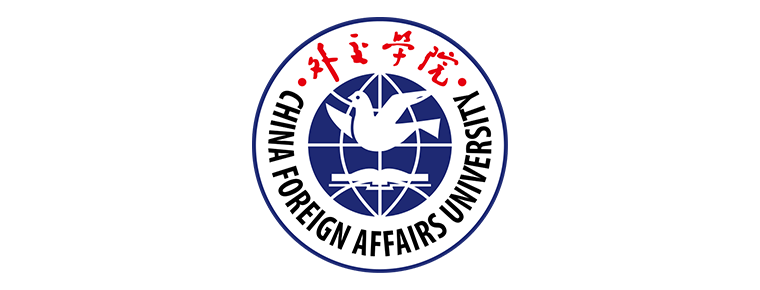
-
Serdang snow mountain Xiling snow mountain
Xiling Snow Mountain, located in Dayi County, Chengdu City, Sichuan Province, is only 95 kilometers away from Chengdu, with a total area of 483 square kilometers. It is a world natural heritage.
Views: 139 Time 2018-10-30 -
Beijing Planning Exhibition Hall
Beijing Planning Exhibition Hall, located in Qianmen East Street (east side of old Beijing Railway Station) of Dongcheng District of Beijing, is renovated on the basis of the original building..
Views: 377 Time 2018-12-26 -
Jin Memorial Temple
Jinci Temple is located in Jinci Town, Jinyuan District, Taiyuan City, Shanxi Province. It was originally called Jinwang Temple and was first named Tang Shuyu Temple..
Views: 135 Time 2019-01-29 -
Shandan Great Buddhist Temple
Shandan Grand Buddha Temple is located at the foot of the mountain 5 kilometers west of Shandan County, Zhangye City, Gansu Province. The old name of "Tufo Temple" was built in the Northern.
Views: 161 Time 2019-02-08 -
Baxian Yaochi Party
Baxian Yaochi gathering is a traditional dish in Tai'an, Shandong Province, which belongs to the Shandong cuisine family. Egg white is the main material for Baxian Yaochi gathering..
Views: 129 Time 2019-03-27 -
Guan Suo Opera
Guansuo Opera is a kind of local opera, which belongs to the ancient Nuo Opera. It is only found in Xiaotun Village, Yangzong Town, Chengjiang County, Yunnan Province. .
Views: 159 Time 2019-05-01 -
Jin men drum
Jinmen Fagu is a local traditional music and dance art in Tianjin, which appears in the form of performances of the Lao Hui or the Sacred Congregation. In June 2008,.
Views: 137 Time 2019-05-07 -
Qinghai Pingxian
Qinghai Pingxian, also known as Xining Fu Zi, is one of the new local folk songs in Qinghai Province. It is popular in Xining, Huangzhong, Datong and Mutual Aid Agricultural Areas. Qupai is known .
Views: 203 Time 2019-06-10 -
Legend of Su Xian
The legend of Suxian is a local folklore with a long history. Su Xian, Ming Lian, from Guiyang. Su Da lost his father in his early years and depended on his mother for his life. One year, the plague w.
Views: 197 Time 2019-06-17 -
Uygur Drum Music
Uygur drumming music is a kind of national instrumental music widely circulated in the Uygur communities in the north and south of Tianshan Mountains, Xinjiang. Uygur drum music is an important kind o.
Views: 527 Time 2019-06-26 -
Xi an Drums Music
Xi'an drum music, also known as Chang'an ancient music. It is a large-scale traditional folk drum music spread in Xi'an (ancient Chang'an) and its surrounding areas for thousands of years. It originat.
Views: 194 Time 2019-06-30 -
Cross talk
Crosstalk is a folk art of rap and singing. It takes the form of speaking, learning, teasing and singing to highlight its characteristics. Famous cross talk performers include Zhang Shouchen, Ma Sanli.
Views: 229 Time 2019-07-03
